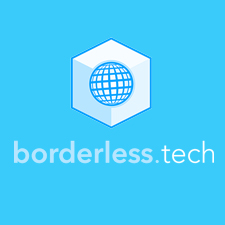Editor Note: “Lately, in cryptocurrency circles, all the chatter seems to be focused on the programmable cryptocurrency blockchain Ethereum. However, there are competitors and similar projects within the realm of smart contract solutions, decentralized applications (DApps), and the popular subject of decentralized autonomous organizations.”

Bitcoin.com recently chatted with the three core members of the open blockchain platform Expanse (Expanse.tech), which has characteristics that are similar to Ethereum’s and is built on top of the protocols EVM.
The creators of Expanse Christopher Franko (Lead Dev.), Dan Conway (Co-Dev), and James Clayton (Community Manager) believe the project is more community focused, and a “more affordable alternative” for DApp development and self-executable contracts. The project also includes its own version of a DAO and the Expanse developers say they aim to be a top contender within the cryptocurrency universe.
Bitcoin.com (BC): What gave you guys the idea to start Expanse?

Christopher Franko (CF): I had been incubating a few blockchain ideas for the last three years that I was running into issues with, mainly because the Bitcoin scripting language is so restrictive. I followed ethereum from the sidelines through most of its early development and got really excited about what I could do and build on top of the EVM. The ETH platform is awesome. Its design encourages the use of private networks and such. So that was the route I was originally going to take. Then I decided there was an opportunity to make the network public and offer people a choice. I posted a message on James’s crypto Facebook group that got him and others excited, and the rest was history. An alternative public network is beneficial for us because it allows us to diverge from Ethereum should the need ever arise, as well as offer the people a choice and a more affordable alternative for DApp development.
James Clayton (JC): Right at the time Ethereum was coming out Franko mentioned to the Cryptocurrency Collectors Club that he was going to create an Ethereum Alt. As soon as he wrote that, I remembered an alternative brand I came up with that was a perfect fit in my view. (Expanse, with the ticker EXP) Speaking with Franko, I told him my idea for the branding, and interestingly, he had a concept he was working on called Exp.life, so it was synchronicity, and we both knew we had something special and started working on it right away.
Dan Conway (DC): In the past I would regularly speak to both James and Franko about developmental concepts, industry trends, and other facets of related technology, having known them for multiple years inside the blockchain technology community. Sometime shortly after they conceptualized the project, while speaking to them about some of the ideas and models I had developed related to a platform I was working on previously, they offered to bring me on board the project. Appreciating their principle of an openly distributed community project based on Ethereum, I eagerly joined the core team and started working with them to produce the platform.
BC: How do you view Expanse compared to cryptocurrencies such as Bitcoin, and Ethereum?
 CF: I view Expanse as filling a different need than both of those platforms. Bitcoin is the original cryptocurrency while Ethereum is trying to be the first decentralized computer that does all the things. My dream for Expanse is to be the basis for a brand new governance platform that will liberate and add liquidity to citizenship. This goes back to the ideas that I’ve been incubating over the years. So where Ethereum is focusing on solving all the world’s problems, I am focusing on one specific problem, governance.
CF: I view Expanse as filling a different need than both of those platforms. Bitcoin is the original cryptocurrency while Ethereum is trying to be the first decentralized computer that does all the things. My dream for Expanse is to be the basis for a brand new governance platform that will liberate and add liquidity to citizenship. This goes back to the ideas that I’ve been incubating over the years. So where Ethereum is focusing on solving all the world’s problems, I am focusing on one specific problem, governance.
JC: I do not view Expanse as up against Bitcoin or Ethereum. Bitcoin is like the ocean all the Alts sail on and depend on. Ethereum is even the very stuff we are based on, so while we will do some things differently, I don’t see us as up against Ethereum. For that matter, I see Expanse as a great opportunity for Ethereum traders to diversify.
DC: That would depend on if by ‘up against’ you mean how does Expanse compare to Bitcoin and Ethereum in regards to features, capabilities, community, etc. — or if you mean going up against in terms of directly competing against each other. I think there is enough room and growth in the industry, and due to the open source nature projects benefit from each other greatly to where I don’t think too much along the lines of direct competition.
The ETH DAO is an add-on while the expanse platform as a whole is the DAO. That means participants don’t need a new token to vote they use the ones they already have.
BC: How do you think the market has treated your cryptocurrency once it began trading?
CF: So far so good. We are always in the top 20 with daily volume. Which to me is leaps and bounds more important than market cap.
JC: When it first began trading we grew extremely fast, so if anything I think we were a bit too popular initially, the first days, but we added talent and simply kept working. Clearly EXP also follows ETH to a point with the charts, and I personally think we are undervalued at this time, but the market seems to also know this I suspect, and it always seems to work itself out.

DC: Market reception so far has been amazing. We experience continuous market growth having chosen the model of steadily increasing value over time based on the project’s progress and own merit, as opposed to launching with an inflated price due to an ICO Shortly after launch Expanse established itself as one of the top traded crypto assets by volume, many times in the top 4 by volume. As a developer, I try to remain impartial to market activity, as markets are subject to manipulation from outside forces it can be dangerous to let them dictate development decisions. That being said, it is important for us to consider the finances of those who believe in our project is at stake, and as such every effort should be taken to manage and develop the project in a way that will ensure steady growth in value for its users.
BC: Expanse has its own DAO correct? What do you guys think of the Eth DAO and how does it compare and contrast to the Expanse version?
CF: The ETH DAO and EXP DAO are similar only in name. The Slock.it DAO is created in such a way to sell tokens and generate a false sense of democracy. The ETH DAO is an add-on while the expanse platform as a whole is the DAO. That means participants don’t need a new token to vote they use the ones they already have.
We incentivize voting with gamification. Voters earn influence and power, two attributes that determine elections. We also don’t use curators because we believe a DAO should be decentralized.
JC: It is quite different, ETH is based on an ICO, and the DAO is also an ICO. There is no ICO for EXP and not a penny was raised or asked for. So really the funding and legal situation is totally different. In fact, these experiments are radically different. We have 10 million EXP for the DAO reserve, and they raised countless millions. Who is free to experiment more, and who’s hands are more tied by their investors? I would say Expanse if far more free to try new things without worrying about ICO investors, which gives our community a lot of freedom to try some out of the box ideas.
DC: Correct, Expanse has its own DAO. I think the ETH DAO is a solid barebones implementation of the DAO model and with the amount of financial resources they have available it will be interesting to see what direction it goes in. While both platforms share the model of a Decentralized Autonomous Organization, there are many differences in their foundation, structure, and operating capacities. The clearest difference between the two, is that Expanse and its DAO are two parts of the same whole. Expanse is the technology platform, and its community run DAO is the organization that operates and manages that platform. Everyone who holds at least one Expanse token is able to fully participate in the Expanse DAO. ETH/The DAO in contrast, are distinct from each other — they each have their own individual token that was sold in an ICO sale, and “The DAO” itself has no direct influence or control over Ethereum.
BC: How do you guys feel about the current state of the Bitcoin ecosystem? With topics such as the block size and scaling?
CF: The Bitcoin economy is doing well. The very brand of Bitcoin has permeated everywhere. When I was getting my passport a couple of months ago, the guy at the passport office and I talked about Bitcoin extensively, and he knew an alarming amount about it. This, to me, means the Bitcoin experiment is successful. However, the community looks to be under attack. What I mean by that is, on the surface it appears that the Bitcoin devs have been factionalized and persuaded into fighting each other. Be it ego or whatever, the unity that Bitcoin used to bring feels under threat. However, the powers that be fail to realize the IDEA of Bitcoin, the IDEA that WE THE PEOPLE can determine what is valuable to us, can’t be killed.
JC: I am bullish on Bitcoin, and just as the internet managed to scale, so will Bitcoin. The code can be adjusted, added, it isn’t magic, just a matter of doing it and Bitcoin has people that can do it. Even in some worst case scenario for Bitcoin, it could be fixed like any Alt. No big deal.
The powers that be fail to realize the IDEA of Bitcoin, the IDEA that WE THE PEOPLE can determine what is valuable to us, can’t be killed.
DC: I think the state of Bitcoin is always improving. There may be dips in various people’s impressions when various negative events happen, be they unfavorable regulation, exchanges being hacked, or technical or unique issues creating uncertainty such as that recently the case with the block size debate, or even someone revealing themselves as Satoshi Nakamoto. Even in those cases, however, longer term market growth is consistent, adoption continues to explode, and more and more innovative applications of blockchain technology are being introduced.
BC: How would Expanse scale if it were to become as popular as Bitcoin?
CF: Depends on what you mean by scaling. Are we talking scaling in the sense of adding extra developers or scaling as in the network itself being scaleable. The Ethereum developers are working on solutions like sharding, data compression, light spv clients and such that will surely help. The difference between ETH and EXP is, we aren’t married to the ETH technology, and if something better comes out we will migrate to the better technology. Hyperledger and Tendermint, for instance, are saying they can handle 10,000 tx’s per second with very little problems. Expanse is an idea, and ideas can migrate and evolve to ensure its survival.

JC: Since you asked, I have thought about this. We would hire a lot more devs, as that is what it would take to be as popular as Bitcoin, assuming you mean used as much with transactions. We have the reserve and the funding to do so, certainly if we started to become as popular as Bitcoin, we would have basically endless funding for our DAO and new devs. (You can do the math with our market cap and just imagine…) Expanding, growing as much as possible, all part of the plan.
DC: Expanse is designed as a community-based project — it is designed to scale to be as large of an organization as it can. The project is designed as a self-sustaining organization that, as it grows and its needs grow, can facilitate its own growth as necessary. The technology can currently support as much (and more) use than the Bitcoin network utilizes. There are some challenges faced by both Expanse and Ethereum if the platforms are ever adopted worldwide and implemented at their full potential, but both teams have solutions in development that will be in place well before this concern is faced.
BC: Can you explain Expanse’s smart contract platform?
CF: Expanse’s smart contract platform is the EVM coupled with a higher level language like solidity. So essentially the same as Ethereum, as a matter of fact, if you are an Ethereum DApp developer you could launch that same DApp on Expanse for very little cost. Not only that but if you have a good idea, we could help you fund it with some resources.
JC: Smart contracts enforce the rules and code, and offer new advantages with the technology. For example, Smart contracts can control funding, or enforce payments after vote outcomes, and countless other possibilities, giving platforms like Expanse a great deal of utility.
DC: The Expanse network is one giant Virtual Machine. Expanse Smart Contracts are bytecode that exist on its blockchain. The EVM is Turing complete, allowing users to write contracts as extensive as their imagination allows in various languages such as Solidity, Serpent, and LLL, which are then compiled into bytecode and published on the Expanse blockchain. These contracts can be interacted with directly, or through other applications and dApps to directly interact in dynamic ways with the Expanse blockchain and EVM.
BC: Can you tell our readers about the Borderless.tech coalition?
CF: Borderless.tech is my baby, I’m currently writing the whitepaper for it. Borderless.tech is a coalition of governance services built from smart contracts that live on the Expanse blockchain. They will offer things like a borderless identity, allow one to get married on the blockchain, notaries, property registration, etc. There is also another side to it that I can’t go into right now because all the legal paperwork and stuff isn’t completed but when the time comes it will be mind blowing.
JC: What I really like is that it is a part of the DAO, so our DAO will be fairly deep and be quite powerful. he identity system is super cool with Borderless, as there will be normal and anonymous identities as not everyone wants to be public, and people that don’t should be allowed their privacy while still being able to vote on proposals with their EXP.
The identity system is super cool with Borderless, as there will be normal and anonymous identities as not everyone wants to be public, and people that don’t should be allowed their privacy while still being able to vote on proposals with their EXP.
 DC: Borderless is a set of tools, services, guidelines and an implementation of these features that come together to form a platform providing solutions to the challenges of legacy governmental models. The platform provides modern government service solutions to everyone and anyone from major nations transitioning to a more modern, technologically stabilized and assured governmental platform, citizens implementing changes in their local governments, or people throughout the world joining borderless own native implementation of a true borderless, nationless, citizen controlled governmental collaboration model. It is designed with focuses on offering benefits such as drastically reducing costs of operation of governmental services, minimizing risk factors like corruption, unsustainability, and other major issues faced throughout the governments and societies of the world. Solutions ranging from global identities to true democratic voting, policy management, and enforcement, land and asset rights records, and much more services working together to solve real world issues. In addition to offering these services to the world at large, Borderless runs its own implementation of these services, creating one of the world’s first truly open governmental models in which everyone in the world is welcome to be a citizen and given the technological capacity to do so.
DC: Borderless is a set of tools, services, guidelines and an implementation of these features that come together to form a platform providing solutions to the challenges of legacy governmental models. The platform provides modern government service solutions to everyone and anyone from major nations transitioning to a more modern, technologically stabilized and assured governmental platform, citizens implementing changes in their local governments, or people throughout the world joining borderless own native implementation of a true borderless, nationless, citizen controlled governmental collaboration model. It is designed with focuses on offering benefits such as drastically reducing costs of operation of governmental services, minimizing risk factors like corruption, unsustainability, and other major issues faced throughout the governments and societies of the world. Solutions ranging from global identities to true democratic voting, policy management, and enforcement, land and asset rights records, and much more services working together to solve real world issues. In addition to offering these services to the world at large, Borderless runs its own implementation of these services, creating one of the world’s first truly open governmental models in which everyone in the world is welcome to be a citizen and given the technological capacity to do so.
BC: How did Expanse get involved with the Microsoft Azure platform?
CF: Partnerships are important to expand the platform and build value for our community, so it is important for us to be aggressive with getting new partnerships for our community.
JC: Franko created the template in advance and got everything set up ahead of time correctly, and then contacted Microsoft once we were perfectly ready to be added. I believe they said we were the “most aggressive team” for getting added to Azure, so kudos to Franko for being aggressive for EXP. I would mention the 120k we got from Microsoft Bizspark plus is even better, as I can guarantee we are using those services they offered.
DC: We are always seeking partnerships with leading industry figures and third-party organizations that can provide added value and/or additional function to the platform. Franko had created and added a template for Expanse to Azure well before the trend of blockchain projects being featured on it, so once Microsoft began announcing their BaaS partners we were already established in their infrastructure and from there worked with their representative to further establish a mutually beneficial official partnership.
BC: What’s the overall mission for the core Expanse team?
CF: To offer a secure, robust alternative that the people know and love. To grow our grassroots movement into something the history books will remember favorably.
JC: As the community manager, my mission is essentially to grow the community as we are building and improving Expanse. Essentially, to give us all a combined victory and make everyone feel like winners together.
DC: Our primary goal as a team is to facilitate the growth and development of the Expanse platform, and its components. We aim to build and maintain an infrastructure of quality software, tools, and solutions for our users, operating with a strong emphasis on community building. Our intention is to build a strong community and provide them with a feature-rich platform, organizational infrastructure, and set of dynamic tools that allow them to easily and effectively work together to produce amazing things.
